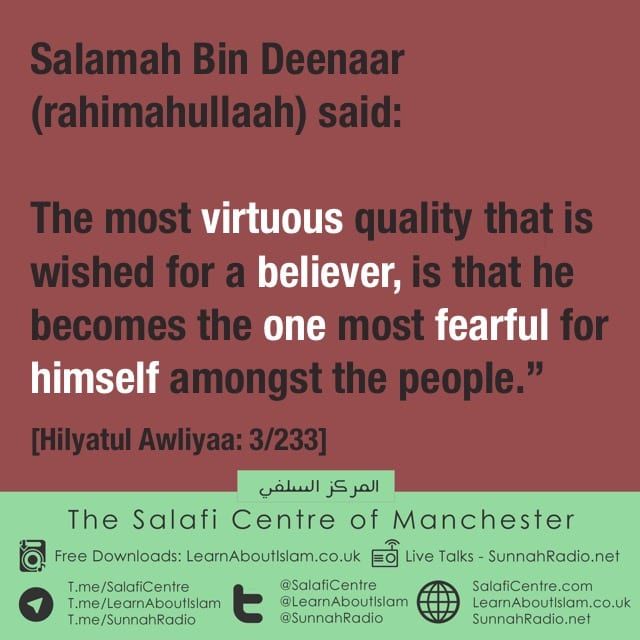
One of the treasures of Paradise
In The Name of Allah, The Most Merciful, The Bestower of Mercy.
Abu Musa Al-Ash’aree, may Allah be pleased with him, said: The Messenger of Allah, peace and blessings of Allah be upon him, said to me, “O Abdullah Bin Qais! Shall I tell you a word which is one of the treasures of Paradise? It is
لَا حَوْلَ وَلَا قُوَّةَ إِلَّا بِاللهِ
“There is neither might nor power (to alternate from one state to another nor move from one thing to another) except by Allaah’s Will” . [Al-Bukhari 6384 & Muslim 2704]
“One of the treasures of paradise“. Meaning, its reward is great and that is paradise; and Paradise is the greatest thing sought after. This shows the virtue of the statement Laa “Hawla Walaa Quwwata illaa Billah”. why does it carry this reward? This is because it necessitates surrendering all of one’s affairs to Allah, manifesting one’s inability and poverty in the presence of Allah, and that indeed Allah is The One Perfect in Strength and The One Fully Able to do all things. It is a great statement, easy to utter and repeat on the tongue. [1]
Sulayman Bin Yasaar, may Allah have mercy upon him, reported that a people were on a journey, then they said before departing:
سُـبْحانَ الَّذي سَخَّـرَ لَنا هذا وَما كُنّا لَهُ مُقْـرِنين
وَإِنّا إِلى رَبِّنـا لَمُنْقَـلِبون
“Glory to Him who has subjected this to us, and we could never have it (by our efforts). And verily, to Our Lord we indeed are to return”. A man among them, who possessed a strong she-camel, said, “As for me, I shall indeed arrive at night using this sturdy she-camel.” However, the camel threw him off, resulting in a broken neck. [2]
Reminder
Allah, The Most High, said:
لِتَسْتَوُوا عَلَىٰ ظُهُورِهِ ثُمَّ تَذْكُرُوا نِعْمَةَ رَبِّكُمْ إِذَا اسْتَوَيْتُمْ عَلَيْهِ وَتَقُولُوا سُبْحَانَ الَّذِي سَخَّرَ لَنَا هَٰذَا وَمَا كُنَّا لَهُ مُقْرِنِينَ
وَإِنَّا إِلَىٰ رَبِّنَا لَمُنقَلِبُونَ
In order that you may mount on their backs, and then may remember the Favour of your Lord when you mount thereon, and say: “Glory to Him Who has subjected this to us, and we could never have it (by our efforts). And verily, to Our Lord we indeed are to return!” [Az-Zukhruf. 13-14]
Mentioned are the three pillars of gratitude and they are:
To acknowledge Allah’s blessings, proclaim Allah’s blessings, praise Allah for them, submit to Allah and utilise them to carry out acts of worship for the sake of Allah (alone). This is because the intent behind the statement of Allah:
وَإِنَّا إِلَىٰ رَبِّنَا لَمُنقَلِبُونَ
“And verily, to Our Lord we indeed are to return” is an acknowledgement of recompense and being prepared for it.
The objective behind these favours is that they are an aid through which a person fulfils that which Allah has commanded him.
And regarding Allah’s statement:
ثُمَّ تَذْكُرُوا نِعْمَةَ رَبِّكُمْ إِذَا اسْتَوَيْتُمْ
“And then may remember the favour of your Lord when you mount thereon”.
This is a specific mention of the (favour) at the time in (which the person enjoys those favours) because blessings intoxicates many amongst the creation, makes them heedless, evil and ungrateful. Thus, this state in which Allah commanded (a person to remember Him for His Favours) is a remedy for this destructive ailment. When the servant of Allah recalls that he is completely surrounded by Allah’s blessings and that nothing is from himself, but rather blessings are (from Allah), -lits means are facilitated and its obtainment made easy (by Allah), he submits to Allah, humbles himself, thanks and praises Allah, and through this he is given continuous blessings. [3]
[1] An Excerpt from Tasheel Al il’haami Bi-Fiqh Al-Ahadith Min Bulugh Al-Maram 6/335 by Al-Allamah Salih al-Fawzan, may Allaah preserve him.
[2] “Al-Uqoobaat” by Ibn Abee Dunyah. 316.
[3] Fataawa Sadiyyah 61

